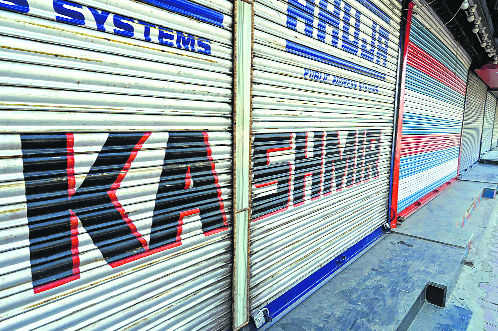
Ira Pande
MANY years ago, I edited a volume on India-Pakistan titled The Great Divide, and a few years later, another one on Jammu & Kashmir called A Tangled Web. I had almost forgotten the contributors’ list and when, after the recent developments, I re-read them, I realised how far we had come from the positions taken by some contributors.
The Great Divide was compiled in the aftermath of the Mumbai terror attack, so, emotional reactions informed many observations. Today, a decade down, that great divide threatens to become an unbridgeable chasm. Yet, something still draws us to each other even as our mutual antipathy deepens. Perhaps it is time to view the two countries through a different medium altogether.
Often, political and social scientists are unable to fully articulate human reactions and feelings. So I can only turn to literature and cinema to understand the complexity of our love-hate relationship with Pakistan. Let us start by remembering some of the familiar tropes and cliches that underpinned several successful Bombay films a few decades ago. Two siblings, separated at birth, grow up in different homes into a good son and a bad one. The climax pulls the brothers compellingly to each other because somehow their lives are intertwined and the resolution of the plot leaves us with a bittersweet taste because one of them has to die. In the 1960s and 70s, countless boxoffice hits were based on this formula and are often quoted as texts in academic courses on Indian cinema.
Similarly, some of the most iconic short stories and novels (to say nothing of the vastly popular TV serials, such as Buniyaad and Tamas) were based on actual or imagined narratives about a bloody separation that crippled two nations. From Manto’s Toba Tek Singh, possibly the most perfect example of the madness of Partition, to Rushdie’s Shalimar the Clown — a loose allegory on Kashmir — there are countless examples of fiction and first-person recollections that stir emotions never completely understood in academic discussions.
The tragedy of Pakistan, says Rushdie somewhere, was that it was insufficiently imagined. Before we pass this over as another clever line from him, reflect on the profundity of this simple observation. Geographically, it was divided into two halves separated by another country from where it was carved. Predictably, one half broke away with the help provided by the country in the middle. That is another story but even more tragically, Pakistan was created out of the broken shards of a history that it never wanted to acknowledge — its Indian connection. So while Pakistanis proudly proclaim their Turkish and Persian ancestry, they have never been able to celebrate their Buddhist and Hindu past, buried in its archaeological sites and dusty museums. They are also faced with a blank when they speak of their independence because at its centre loom the ghosts of Gandhi, Khan Abdul Ghaffar Khan and Nehru. Jinnah’s imagined Pakistan (the land of the pure) quickly became a theocratic state, a mirror image of the Akhand Bharat that our fundamentalist Hindu leaders yearn to re-create.
The toy that both the brothers wanted was Kashmir and they fought over it as brothers do when they feud over the land their father has willed to the other. Pakistan and India have many other problems to attend to but cannot rest in peace until the toy is given to one or it breaks into pieces. This is roughly where we are at present and it is no surprise that our leaders are unable to find a mutually acceptable solution while we watch Kashmir being torn asunder. In this sense, both countries have already lost Kashmir and the sooner they realise that this fight over a geographical territory will determine the future history of the subcontinent, the better. Vajpayee had once said that we cannot change our geography and our neighbours. One could add that neither can we change our DNA and shared ancestry.
Before we reduce this Vale of Paradise into another Gaza Strip or Northern Ireland, one hopes the two nations don’t die at the hands of each other.
— The writer is an author and editor



























